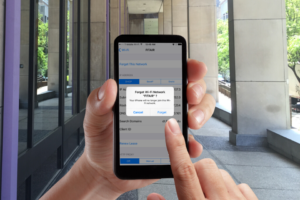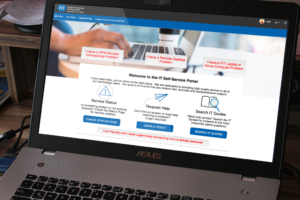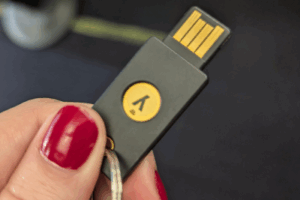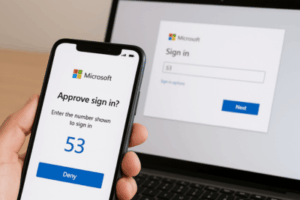Information Security
FIT is Cybersafe is FIT’s campaign for cybersecurity for our community.
Cyberattacks, identity theft, and online scams are all over the news lately. A school might not seem like a likely target, but colleges, along with other institutions, are increasingly in the cross-hairs of global cybercriminals. College databases hold a lot of personal information about students and employees that can be valuable to hackers.
Many attacks against institutions like FIT succeed because of something a community member did (clicking on something they shouldn’t) or didn’t do (use a strong password). That’s why we’re starting a campaign to make everyone aware of what they can do to stay cybersafe. We’ll provide tips, training, and online resources and members of our security team will be at campus events to promote awareness and answer questions. And remember the same practices that protect you at FIT protect you at home.
Be aware—and Be Cybersafe!
Two Factor Authentication (2FA) at FIT
Due to the rising levels of cyberattacks that have been so visible in the media, it is important that FIT and the FIT community take the necessary steps to better protect the college and its data from cyber harm or theft.
Two-Factor Authentication (2FA) also known as 2-Step Verification, or multi-factor authentication requires a user to present two or more pieces of evidence to authenticate (verify their identity) before they are granted access to an application.

Recent Posts
Review Past Threats
Cybercriminals often reuse or create a variation of past scams, read through our threat archives to learn more about how to stay Cybersafe.
Recent CISO Updates
DeepFakes: Is Seeing Really Believing?
In a world in which phrases like “Fake News” dominate the airwaves and fraudsters are trying to steal our money and information, we all need to be more vigilant about verifying the authenticity of what we see on the Internet or other information sources. But, what do you do when […]
What Would You Give Up for Free Coffee?
This month we’re going to focus on a close cousin of Information Security: Information Privacy. Increasingly, whether it’s social media or use of wi-fi, you’re being asked to trade your information for some free service. A few months ago we talked about those social media quizzes that ask you what […]
Stolen SIMS
What do a spate of hacked Instagram accounts, a $220 million lawsuit against AT&T and a bustling underground crime ring have in common? They all started with SIM card swaps, a scam in which hackers steal your mobile identity—and use it to upend your life. At its most basic level, […]



















